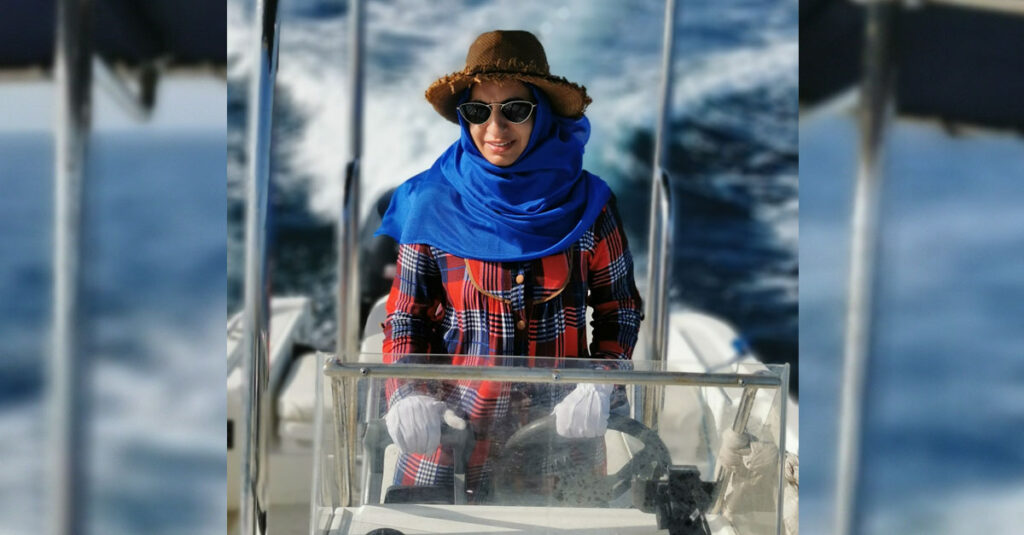
Why do we need any reasons to protect our own property, asks Aida Al Jabri, one of the Sultanate’s first few Omani marine conservationists.
Called a ‘wonder woman’, having trained 120 marine rangers, and working all hours for the cause of the marine environment in Oman, AIDA AL JABRI, explains why marine conservation is of paramount importance.
“Oceans provide us with an array of resources and services that are essential for all life on earth, including the wellbeing of humans. But it is also crucial to keep our resources protected. Qualities like accountability and empathy are the most important virtues that could make our planet a better place. It is easy to point fingers and pass the responsibilities to others. But as a conservationist in a beautiful coastal nation, it pains me when we need to have rules and regulations to safeguard our own property,” Aida opined to the Purple.
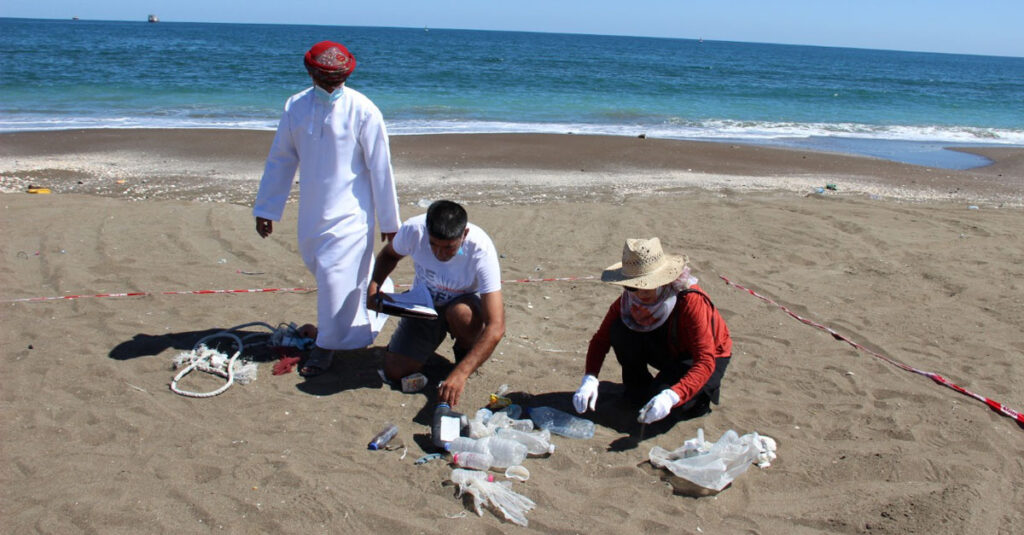
Everyone’s responsibility
“While a conservationist works on limiting human-caused damage to marine ecosystems and on restoring damaged marine ecosystems, it should be the responsibility of every human to ensure the damage caused by livelihood, tourism, leisure and economy should be minimal and sustainable,” she stressed.
Strong rules and regulations
It is a well-known fact that human activities are threatening the health of the world’s oceans. And more than 80 percent of marine pollution comes from “land-based” activities. But, what is the situation in Oman?
“We have strong rules and regulations set up to protect our marine world. Regarding discharge in the seas, industries/factories can do it only after treatment and a series of processes are involved before finally discharging to the seas.
The rules are very protecting in nature.
Regarding the general public, I would say they are mostly aware today. Many campaigns are ongoing for students to beach-cleaning corporate activities; schools teach their young students as to why we should not dump garbage or plastics into the beaches; the hazards of pollution and the endangering of marine life. Most of us are aware. It is definitely not a matter of lack of awareness,” Aida noted.
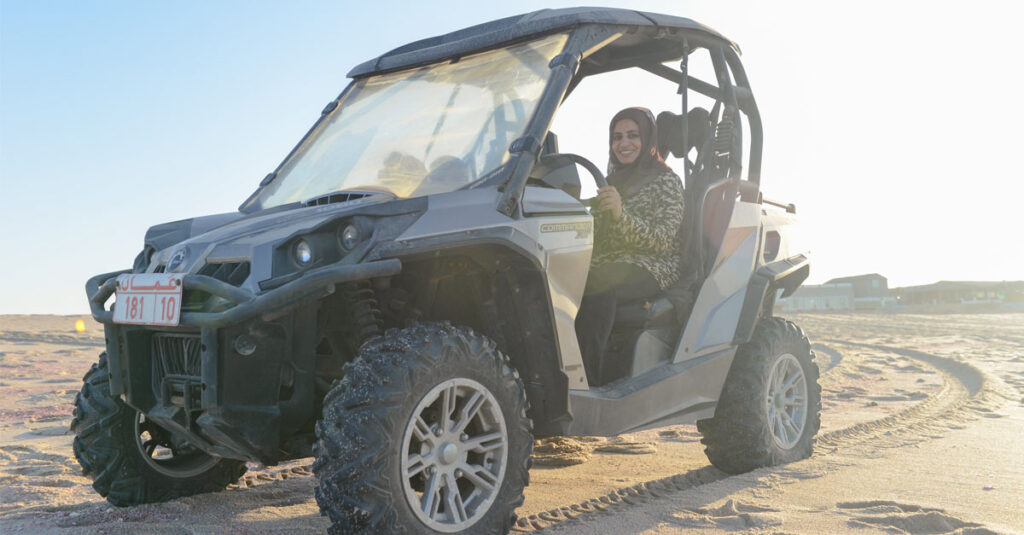
Commercial fishing depletes oceans
She said a survey was done from Musandam to Dhofar to check on the pollution caused by the human population. “(It was then) we realised that most pollution is not from general public; it is from the fisheries sector. Commercial fishing depletes the world’s oceans, it is a global phenomena. “The fishing trade is a traditional one for Oman, but there are demarcated areas in the seas to do fishing; there are allocated places for the boats to be parked; equipments to be stored and dumping areas for the garbage/rubbish/leftovers that comes out of the fishing trade to be dumped etc.”
Systematic approach
Aida said that work and planning is going on in Oman for a systematic approach to regulate the fishing trade without damaging the marine world. “According to me, the most land-based activities that cause damage and will further cause damage is the fishing trade and its related activities like the motor boats, the spilling of the fuel used for the motors, the nets, the frequent/overfishing in some specific spots to list a few. Fishing, especially by the bigger trawlers/fishing vessels, also has a direct impact on fish population disappearing, damage to coral reefs,” Aida explained.
Immediate focus
“So the immediate focus should be on setting up a sustainable form of fishing practice(s),” she advised, adding that sustainable fishing would mean leaving enough fish in the ocean, protecting habitats and threatened species.
Entangled in two aspects
To a query, Aida said that the marine world, world over, is entangled in two major aspects – tourism and the economy of the nation. “Yes, we are dependent on the marine world and we have to be worried about the rapidly changing climatic conditions.” She referred to the recent storm that hit Oman, which while damaging the land and the living also transformed the marine creatures too. “So we need to protect and conserve more,” she stressed.
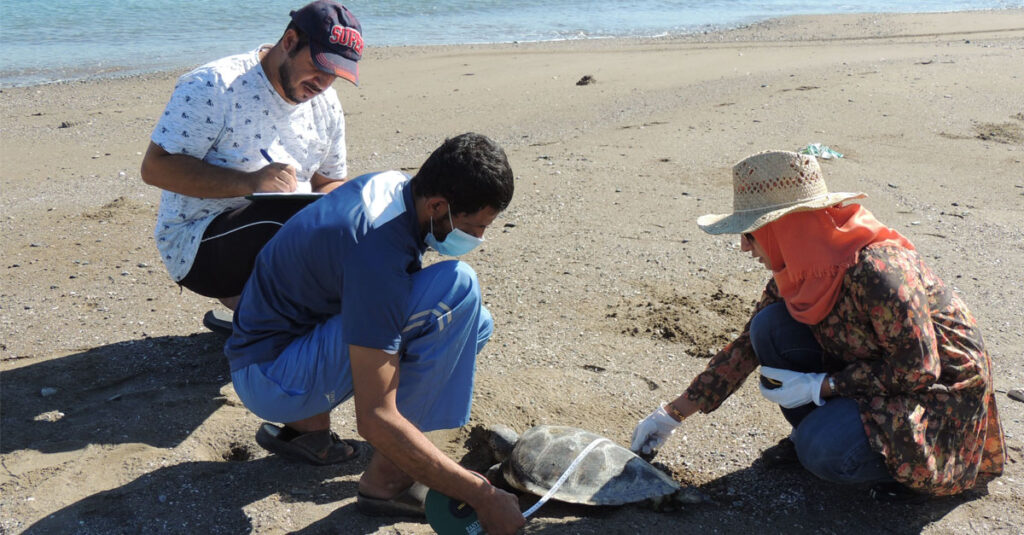
Turtle commandos
“At Ras Al Had, we currently run a three-month campaign called ‘Turtle Commandos’ to conserve turtles. Volunteers are helping us in this regard. One of the activities of this campaign includes handling the aftermath of the Shaheen storm/cyclone on the baby turtles. Because of the lightning strikes as well as the surrounding house that has lights, the baby turtles often get lost, travelling towards the lights, rather towards the moon light and the seas. So the volunteers are taught to collect these turtles and turn them back to the sea, while creating awareness of the nearby population to reduce the lights, and to generally avoid unwanted extra lighting.”
Environmental threats too
Regarding the impact of Shaheen, the high waves during the cyclone washed out the turtle eggs from the nesting areas. “And this was one of our major challenges as a result of the aftermath of Shaheen.“So it is not just the pollution, lack of sustainable fishing that threatens the marine world, environmental threats also damage the marine lives,” Aida pointed out.
Let them exist in their habitats
While Aida’s heart beats for the marine world, there is an extra beat for dolphins. They have a special place in her heart. She also noted that they were all for tourism and supported it. Tourists can enjoy a day with nature, but, she insisted, “enjoy nature in its pristine form”.
“I support dolphin tourism, provided we look at the dolphins in its natural habitat, not chase them, or change it behavioural patterns by feeding it etc. We should allow the marine beings to exist naturally in its habitat.
“When we feed fishes and dolphins, it changes their natural food hunting behaviour. When you chase the dolphins, they are forced to move to different areas, maybe even chase them to their risk areas where they are out of their food chain. Sustainable tourism and economic procedures, rules, regulations are to be followed,” Aida stressed.
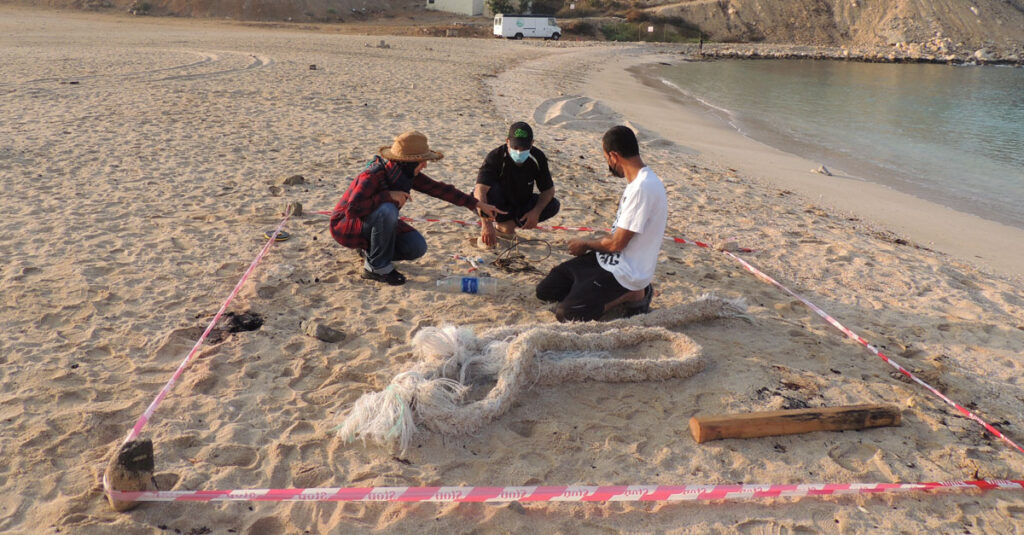
Joint efforts needed
“We should ensure not to litter, or leave garbage around. The tourism and economic industry should ensure sustainable practices are followed and ways to ensure to clean after use. All of us should jointly see that the well planned and placed procedures are enforced effectively,” she added.
Protect, conserve, enjoy
“Oman can boast of dolphins, turtles and the whales, unique only to our marine habitat. Let us protect, conserve and enjoy their presence.
The marine creatures are vulnerable when humans get into their natural habitat. They are our responsibility. Let us protect and nuture them, so that our future generations have a well-balanced healthy marine world,” she further stressed.
A decade of learning
The last decade has been a learning ground for Aida. “I would say I am still working my best to contribute to the marine world, in training of over 120 male rangers, to conserve and protect and it has been a challenging task being one of the first few marine conservationists in Oman.
“I am in a position today to train and create awareness and protect our eco system, but during our time, we had no one to train us.
Imagine training 120 rangers, especially being a woman in our conservative Omani culture. It has been quite challenging and some call me a ‘wonder woman’ to work all hours and in a unique marine environment. I am passionate in this endeavour and my family supports me in this career choice,” she said.
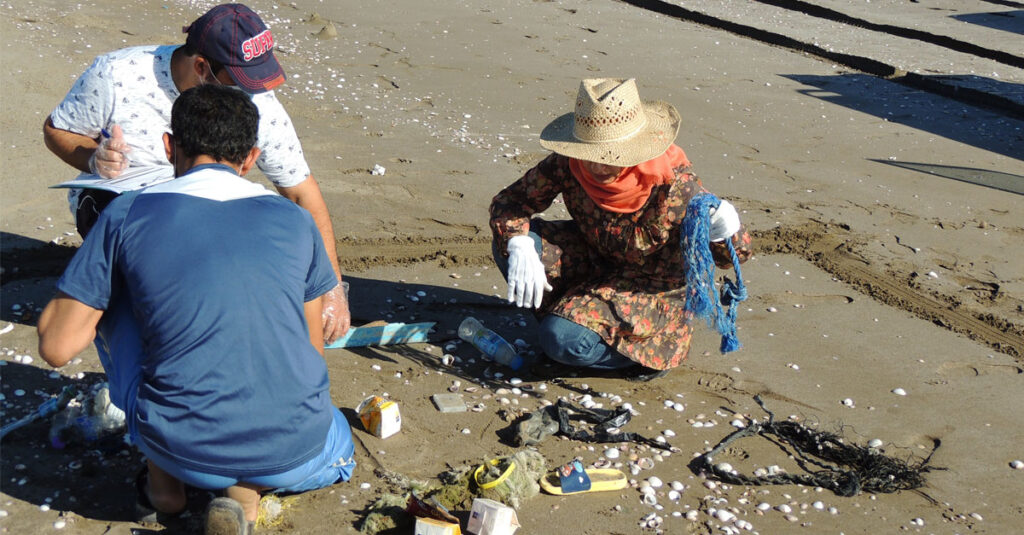
Why, this line?
But, why did she choose this line? “Since childhood, I have been always fascinated by the beaches and the ocean. My mother used to take me to the beach. I used to be intrigued by the water and the living marine beings.
When I completed my high school, I planned to go overseas to pursue higher studies. Even though I scored good marks, it was a tough task to get into the desired stream of courses. There were quite a lot of students, who, like me, had scored over 90 percent. So I decided to start my graduation at the Sultan Qaboos University (SQU) in a non-science commerce stream,” Aida said.
However, after a long year of commerce, she realised that she was not getting anywhere with it. “I realised that it is not my field and my love for the animal world made me decide that I go the right route if I ever want to reach my field of career. So from the College of Commerce I shifted to the College of Agriculture and Fisheries, choosing the marine specialisation.”
Not a swimmer or diver
“Though I love the seas, water and everything marine, let me tell you I am not a swimmer,” she confessed. “In fact you may find it ironical, but I really have a fear of the deep sea, so I never pursued swimming and diving,” she further revealed, adding however, she knew the basics of swimming.
“But I have only love for the marine life and I have no qualms to venture out to the deep seas in search of whales and dolphins, and even if it stretches for seven to eight hours, I am not bothered. I am in this marine world for the last 10 years and will continue to go forward,
A different path
After graduation, she then completed her masters on coastal and flood engineering in the UK. “It was a different path, but I had to choose a course that kept me nearer to the marine world. The masters and the thesis did take me to a different section of the marine world, turning my focus to erosion and most of my studies were on mathematics and physics,” Aida said.
Times are changing
“When I pursued my education in this field, I would say I did not get the chance to choose what I wanted to, but chose a near one to the marine conservation sector. There were only five female students amongst many male students. Most of us have the inhibitions that the vast marine field is not suitable for ladies and many would not venture into this area of specialisation. Of course, today after 10 years, I would say the scenario is changing,” Aida surmised.
An entire generation needed
“We need more environmentally aware and responsible youth and maybe an entire generation to focus, specialise and protect our marine world. “So let us start with getting the community aware of preserving, protecting and nurturing our marine world. Let us get both male and female students and more courses in this field. Let us get more willing, passionate conservationists, to keep our eco system well protected and practices sustainable,” she said passionately.
Humungous responsibility
“Oman is a coastal region, surrounded by seas all around, but the conservation side of it is still in its nascent phase, considering the coastal stretches all around. The marine world is an immense living world underwater, inhabited by marine life that varies from the mundane to the unique and strange. And conservation of this vast world is a humungous responsibility, considering the sometimes irreparable damage caused by the daily living habits of the human population,” Aida noted.
Not just protection
“Marine conservation is not only about protection, it mainly focuses on limiting human-caused damage to marine ecosystems, and on restoring damaged marine ecosystems. I chose this field consciously to do my bit.I am working in the marine section of the Environment Authority (earlier the ministry of environment),” Aida said.
Bilingual book
Currently, Aida is working on a bilingual book. “Oman can boast of over 20 species of unique marine life and so I am bringing out a book on “Whales and dolphins in Oman’ – a sort of a guide and details of the species in Oman. It will be out soon.”
Oceans free of all threats
Asked about her dream, Aida passionately noted: “My dream is to live in a world where the oceans are free of all threats. Marine animals should be safe, and we must coexist in a sustainable manner, not just today, but in the future too. My dream is to contribute, create awareness for a sustainable marine eco system in Oman. “Our nation is a beautiful coastal country, let us be proud and protect what is ours so the ocean world remains intact and in its pristine nature,” she concluded.
——————————————————————————————
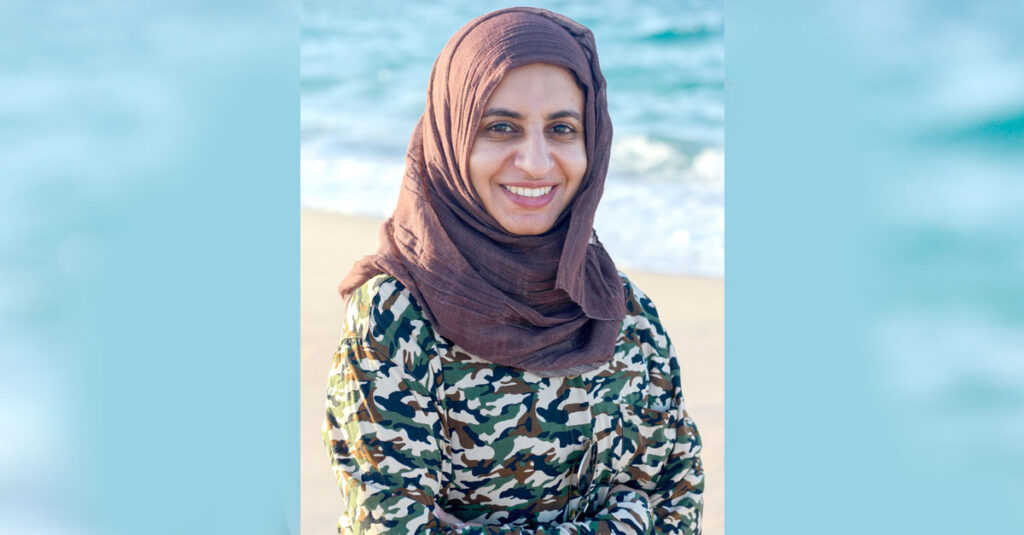
ABOUT:
Aida Al Jabri, studied master of flood and coastal engineering, Brunel University London, and bachelor of marine and fisheries science, Sultan Qaboos University. She is a marine environment specialist, Environment Authority, Marine Conservation Environment Department.
She has 10 years professional natural resource experience working in and directing conservation programmes focussed in the marine environment. She has coordinated multi-stakeholder science, education, and management activities and is a highly organised professional with excellent communication skills. “I serve as a technical environment expert and trainer on all aspects of marine conservation. I evaluate and review Environmental Impact Assessments and proposals for development projects in Oman’s coastal areas. I served as team member advising on marine conservation issues for the World Bank’s Gulf Environmental Partnership and Action Programme (GEPAP). I established the executive government regulations for the management of whale and dolphin tourism activities. I served as lead Oman government official developing protocols for implementation of a countrywide marine mammal and turtle stranding network. I organised and led environmental education and awareness programmes, for various audiences, including school children, local fishermen, Omani women’s societies, private companies, rangers, and government environmental specialists. I participated in planning and provided advice regarding oil spill incidents in sensitive marine habitats. I helped organise and participated in various marine resource management projects, such as mangrove transplanting, marine mammals stranding, marine pollution monitoring, and beach cleaning campaigns,” Aida said.

0 Comments